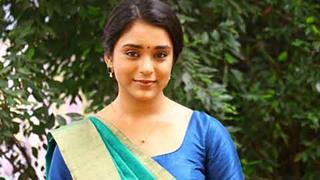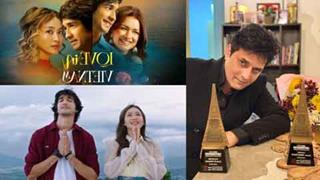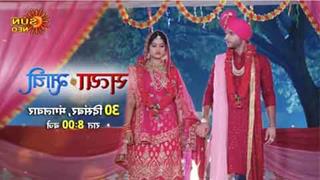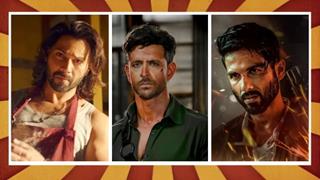Legendary actor Sunil Dutt, who took to politics and became the country's sports minister last year, died of a heart attack at his Bandra residence here Wednesday, family members said.
He would have been 76 on June 6.
Dutt, who represented the Mumbai North-West constituency in the Lok Sabha, was an avid champion of secular values. He had been ailing for a few days. He was a widower. His wife Nargis Dutt, another famous actor of her time, died of cancer in a New York hospital in 1981.
He is survived by his actor son Sanjay Dutt and two daughters.
Sunil Dutt, who rose to starry heights in Bollywood before becoming a hero in real life, was reduced to living on the footpath when the partition of India stripped his family of their home in Pakistan.
But in the many hardships he faced in his 76 years of life, Dutt - popularly known as Dutt Sahib - never lost his sensitivity, his deep attachment to human values and his abiding commitment to secularism.
For millions Dutt was the ultimate hero Bollywood ever produced, the man who always kept a smile on his face and who always faced triumphs and setbacks with equal resolve.
And he was no ordinary politician. Few in Mumbai, a part of which he represented in the Lok Sabha, thought he was one.
For those who voted him and to the many who admired him from a distance, Sunil Dutt was a good human being, a man who despite facing multiple disasters in his personal life always had time for the needy and the poor.
When Sikh militancy gripped Punjab, Dutt, with his daughter Priya, walked all the way from Mumbai to the Golden Temple in Amritsar, praying for peace. Another time he motored through Sri Lanka, Bangladesh, Bhutan, Nepal and parts of India with similar thoughts in mind.
His own personal battles began early in life.
He was born June 6, 1929 in a small village called Khurd in present day Pakistan's Jhelum district. He lost his father when he was just five years old. His uncle, his father's older brother, brought him up.
The partition came when he was in his late teens. Muslim fundamentalists forced his family to leave the village.
His uncle had a good friend in a Muslim man, Yaqub. The uncle gave the family's gold ornaments to Yaqub and requested him to take care of them. When some Muslim villages came over to Yaqub's house demanding that he "give up" the Dutt family, the man refused, saying he had vowed to protect them.
This was the first real life glimpse of secularism for Sunil Dutt.
Five decades later, Sunil Dutt made it to Khurd village. Yaqub had died by then. Although he had not kept in touch with anyone, the entire village came out to receive him, the women weeping when they learnt Sunil Dutt's mother was no more.
Dutt would say later: "That moment I realised emotions are secular. Disease and suffering have no religion and no nationality."
After partition, after spending some time on the pavement, his family was given a plot of land in Ambala in Haryana. He moved over to Mumbai and joined the Jai Hind College.
Providence brought him in touch with British advertising company Keymers, who asked Sunil Dutt to interview leading lights of Bollywood. The interviews, which were an instant hit, were broadcast over Radio Ceylon.
The job also fetched him much needed money - to survive in Mumbai. It was during one such interview that he spotted Nargis, the woman he fell in love with and whom he married.
One day producer Ramesh Saigal asked him if he wanted to join the films. Yes, the enthusiastic Sunil Dutt, replied, but only as a hero! "Fine, let us turn you into a hero!" was Saigal's response.
And that is what Sunil Dutt became.
After a screen test for which he borrowed Dilip Kumar's trousers, the film roles came his way, slowly and steadily.
His first film was "Railway Platform". But the movies that fetched him stardom were "Ek Hi Raasta" and "Mother India", both released in 1956.
There was no looking back. Film after film followed - "Yeh Raastein Hain Pyar Ke", "Yaadein", "Gumrah", "Waqt", "Humraaz", "Padosan" and "Reshma Aur Shera". His last film was "Munna Bhai M.B.B.S.", starring his son Sanjay which he did more for fun than for money.
1981 was a turning point in his life. It was the year when Sanjay took to films with "Rocky". It was also the year when Nargis died of cancer, leaving Sunil Dutt a shattered man.
He never recovered from the shock. He immediately took to social work - and politics. The Congress party was his natural choice. He set up the Nargis Dutt Foundation, raising money to battle cancer, donating money and equipment for various hospitals.
During the Sino-Indian war of 1962, Dutt went to the border. And he did that during the India-Pakistan conflict at Kargil too.
He kept in close touch with NGOs and slum dwellers, and warmly met anyone who would walk up to him just to shake his hands. Even when he became a mega star, there was no pride in the man. He always had his feet firmly on the ground.
In the 1980s when his son Sanjay was bogged down by a failed marriage, drugs and unsavoury links with the underworld, the senior Dutt fought on - doggedly.
He was first elected to the Lok Sabha in 1984. He never had to struggle to win an election. That was his greatest testimonial.
He became youth and sports affairs minister in the government of Prime Minister Manmohan Singh exactly a year ago and was taking keen interest in the development of facilities for the hosting of the Commonwealth Games in New Delhi in 2010.
"My concept of secularism is to be a good human being who respects all religion." Dutt once said. "Religion is only meant to make you a good human being. It is not meant to turn you into a fanatic."
It is a message he delivered from every platform, until he died at home in Mumbai Wednesday.
Sunil Dutt is dead!
Wednesday, May 25, 2005 14:33 IST


















